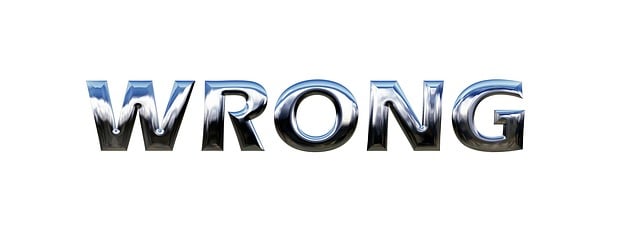Selecting the ideal business insurance involves understanding your company's unique needs. This includes assessing operations, employees, equipment, and potential risks, as no two businesses face identical challenges. By evaluating these factors, you can identify and choose tailored insurance policies, offering comprehensive protection at competitive costs. A meticulous approach involves reading policy language, comparing options, and understanding coverage limits to ensure the best fit for your business's specific requirements. Regular reviews are crucial to adapt policies as your business grows and new risks emerge.
Choosing the right business insurance is a crucial step in safeguarding your investment and ensuring uninterrupted operations. This comprehensive guide will walk you through the process, from understanding your unique business needs to navigating complex policy language. We’ll explore essential types of coverage, risk assessment strategies, cost-coverage balancing acts, industry-specific considerations, and regular policy updates. By following these steps, you’ll be well-equipped to select the optimal insurance that aligns with your business’s specific requirements.
Understanding Your Business Needs

When it comes to selecting the ideal business insurance, a crucial first step is understanding your unique business needs. Every company, regardless of size or industry, operates within its own distinct landscape of risks and opportunities. What constitutes essential coverage for one business might not be relevant for another. Therefore, assessing your specific operations, assets, liabilities, and potential hazards is paramount.
Consider the nature of your operations, the types of employees you have, and any specialized equipment or inventory you maintain. Identify areas prone to damage, loss, or legal claims. For instance, a construction company will require different coverage than a tech startup. By thoroughly evaluating these factors, you can determine the most suitable insurance policies that align with your business’s specific requirements, ensuring comprehensive protection without unnecessary expenses.
Types of Business Insurance Policies

When it comes to safeguarding your business, understanding the various types of insurance policies available is crucial. How to choose the right business insurance involves evaluating your specific needs and risks. The most common categories include general liability insurance, which protects against claims of bodily injury or property damage; professional liability (or errors and omissions) coverage, essential for businesses providing expert services; workers’ compensation insurance, mandatory in many places to cover employee injuries on the job; and business property insurance, which safeguards your physical assets.
Additionally, depending on your industry, you may require specialized policies like cyber liability insurance to protect against data breaches or business interruption insurance to mitigate losses during unexpected events. Assessing these options and selecting the right blend of coverage will ensure that your business is adequately insured, providing peace of mind and financial security in the face of potential risks.
Assessing Risk: A Step-by-Step Guide

Assessing risk is a crucial first step in choosing the right business insurance. It involves thoroughly evaluating your business activities, location, industry standards, and potential hazards. Start by identifying all assets that require protection, such as inventory, equipment, and premises. Next, consider the likelihood and impact of various risks—for example, theft, fire, or property damage—and assign probabilities and severities to each. This step requires reviewing historical data, industry reports, and consulting with experts if necessary.
Once you have a clear picture of these risks, prioritize them based on their potential financial impact and likelihood of occurrence. This prioritization will guide your choice of coverage limits and policy types. Remember that comprehensive risk assessment ensures you’re not underinsured (facing significant financial losses due to inadequate coverage) or over-insure (paying unnecessary premiums for coverage you don’t truly need).
Cost vs. Coverage: Balancing Act

When choosing the right business insurance, one of the most significant challenges is balancing cost and coverage. It’s essential to understand that a policy with extensive coverage might be more expensive, but it provides peace of mind and financial protection in case of unforeseen events. Conversely, opting for the cheapest option could leave your business vulnerable to significant financial losses.
To navigate this balancing act, thoroughly evaluate your business’s unique risks and needs. Consider factors such as industry regulations, potential liabilities, and historical claims data. This assessment will help you determine the necessary coverage levels, allowing insurers to offer tailored policies that strike a balance between cost-effectiveness and comprehensive protection.
Reading and Comparing Policy Language

When evaluating business insurance policies, one crucial step is to thoroughly read and compare the policy language. Don’t simply skim over the documents; take time to understand the coverage details, exclusions, and conditions. Look for clarity in terms and definitions to ensure you grasp what’s covered and what’s not.
Start by comparing different policies side by side, focusing on key aspects such as liability limits, coverage options, deductibles, and waiting periods. Reviewing policy language allows you to identify discrepancies and tailor your choice to align with your business’s unique needs. This meticulous approach ensures that you select the most suitable insurance, providing comprehensive protection for your investment.
Ensuring Adequate Liability Protection

When selecting business insurance, one of the paramount considerations is ensuring adequate liability protection. This is crucial as it safeguards your enterprise from financial ruin in case of accidents, injuries, or property damage that may occur during operations. The right coverage will protect you from legal liabilities and help manage associated expenses, including medical bills, repair costs, and legal fees.
To achieve this, thoroughly assess potential risks specific to your business activities. Factors like industry regulations, work site hazards, and employee roles should guide your decision-making process. Consult with insurance professionals who can offer tailored advice based on these factors. By doing so, you’ll select liability coverage that aligns with your business needs, offering peace of mind and financial security.
Consider Your Industry Specifics

When it comes to choosing the right business insurance, understanding your industry specifics is paramount. Every sector has its unique risks and challenges that demand tailored coverage. For instance, a restaurant faces distinct liabilities compared to a tech startup or a construction company. Therefore, a comprehensive risk assessment is crucial. Identify potential hazards specific to your industry, such as foodborne illnesses, data breaches, or workplace accidents, and ensure your insurance policy addresses these concerns adequately.
Knowing the ins and outs of your business and its place within the market allows you to make informed decisions. Research different types of coverage like general liability, professional liability, property insurance, and workers’ compensation. Each offers distinct protections, so aligning them with your industry-specific needs will help mitigate financial risks effectively. This strategic approach guarantees that your business is shielded from unexpected events, enabling you to focus on growth and success.
Don't Forget Optional Add-Ons

When exploring how to choose the right business insurance, it’s easy to get caught up in the basics: coverage types, limits, and deductibles. However, don’t forget to consider optional add-ons that can significantly enhance your protection. These extras might not be mandatory, but they can provide tailored solutions for your business’s unique needs. For instance, cyber liability insurance is a modern necessity to safeguard against data breaches and hacking incidents.
Add-ons like this demonstrate that your insurance policy can be adapted to address emerging risks. Other options could include employee benefits packages, which go beyond basic workers’ compensation, offering health, life, and disability coverage to attract and retain top talent. By evaluating these optional add-ons, you can create a comprehensive insurance plan that not only meets but exceeds your business’s current and future requirements.
Regularly Review and Update Your Policy

Regularly reviewing and updating your business insurance policy is a crucial step in ensuring you have adequate coverage as your business grows and changes. It allows you to assess new risks, modify existing ones, and incorporate recent legal or regulatory updates that might impact your industry. A simple annual review can go a long way in protecting your business from potential financial losses.
When updating, consider the evolving nature of your operations, new locations, additional equipment, or changes in customer demographics. It’s also essential to keep an eye on industry trends and emerging risks. Staying proactive by regularly assessing and updating your policy helps maintain the right balance between cost-effectiveness and comprehensive coverage, which is a key aspect of How to Choose the Right Business Insurance.
